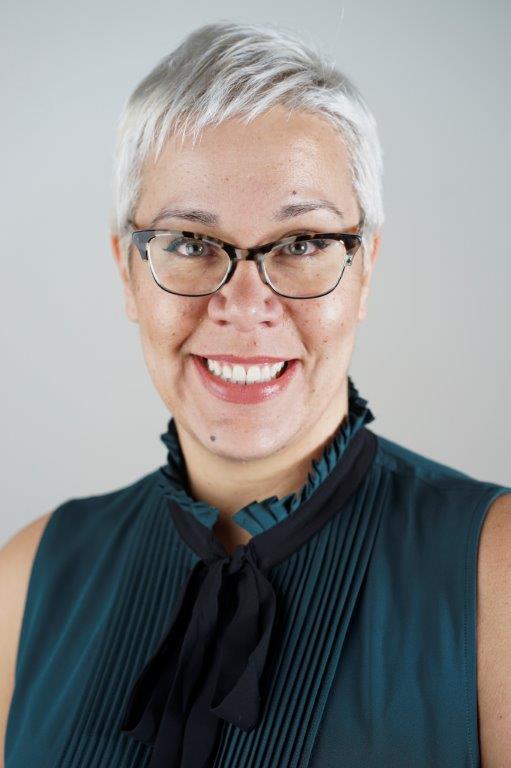
“Notes from the Field” is a special newsroom feature, highlighting industry professionals working to transform healthcare. In this edition, we spoke with Director of Clinical Operations for Tava Health Tasha Jackson, PhD, LPC, CEAP
1. Tell us about your role Director of Clinical Operations for Tava Health?
I’ve been the Director of Clinical Operations at Tava Health for almost two years now. I oversee all of our clinical operations, including anything to do with our therapist network. This includes making sure we have enough therapists to meet demand, we have diversity in our network, that each therapist provides quality care and, most importantly, making sure clients and therapists are connecting.
I also help inform product development, making sure we’re incorporating the tools and features our therapists and clients need.
2. Unrelated to the pandemic, what is one thing you’ve learned over the past year?
I love this question. One of the important lessons I’ve learned is that I am responsible for myself.
Despite what’s happening around me, I always have choices: how do I want to spend my energy and time? How do I want to interact and react to folks? I’m responsible for my side of the street. I don’t know what is happening on the other side but for me; I am what I have influence and control over. It’s so easy to focus on what other people are doing . It’s an important lesson to focus on yourself instead.
3. Who is your mentor and why?
My mentor and I actually chatted this morning. Her name is Faye. Faye and I have known each other for almost eight years now. We started as colleagues, and she has become my mentor. We nudge each other. We nudge each other to be more reflective and help each other to manage ourselves in the midst of difficult or emotional situations. One thing that I really appreciate about Faye is that she helps me to see the potential of life and see the goodness so I can show up as my best and set the example for others. It doesn’t feel like one-sided interaction.
4. What inspired you to pursue a career in mental healthcare?
Initially, I pursued a career in mental health because of my desire to understand people and their motivations. I had the desire to share that understanding with clients to help them live better, more meaningful, and happier lives.
I started my career doing direct care, working with different clients throughout the week. I loved that work, but wanted to have a bigger impact, which prompted my move into administrative roles. Over time, I learned If I could see 20 clients in a week and work with five folks who were also seeing 20 clients per week, the potential impact became much greater. That helped me to think about, from a bigger system perspective, increasing accessibility for a wide range of people.
5. What do you see as the biggest opportunity to improve mental healthcare?
There are great opportunities to improve mental healthcare if we consider diversity from a lot of perspectives. Certainly, in terms of providers, and diversity in approaching the idea of healing–what healing looks like for different people and diverse ways we can achieve that. If we broaden this definition, there is a potential for impacting a larger number of folks.
If we take anxiety for example, it doesn’t necessarily mean you need medication as is often what comes to mind for folks who are dealing with anxiety. A broader definition of healing allows for us consider incorporating body work, breathing exercises and incorporating yoga into the healing journey. We are learning more about the impact of trauma on the body and so many practitioners are bringing body work and yoga into their work with clients, which is different than the traditional approach of talk therapy.
6. What is the greatest challenge facing mental healthcare?
I think there are two challenges and that they are related. The first is that mental health in general feels really abstract for folks. I could be talking to someone about mental health and we could be thinking about really different things. We need to make it a little less abstract. For me, mental health includes your inner state of being, your thoughts, feelings, the physical state of your body, and your social world. Because of this abstract definition, there is a lot of stigma and lack of education, which I think is the other big challenge facing mental healthcare.
The other challenge is related to stigma and the lack of information on mental health and mental wellness. To some, mental health only means something is wrong, with people thinking they should engage in therapy only when something is terribly wrong. But why not think about it from the flip side and say, “I’m in a good place right now. How do I stay there and continue that?”
7. What is one experience you have had in the last year that has supported or refueled your passion for your work?
I think about this a lot. At Tava Health, we have a Slack channel that captures feedback from clients and their experiences in therapy.
When there are hard days, when it feels like I’m not making any progress, I can revisit that channel and the feedback from our clients and see how we are making a difference for folks. The channel is filled with skills that clients have learned, ways that their lives have improved and how they can better engage with their relationships as a result. Those words really refuel me and give me energy to focus on the next project.

